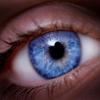So everyday I try to sleep by 2 and wake up at 10, but sometimes i'm up until 4 and end up sleeping till 1, which completely FUCKS UP my entire day, mood wise, energy wise, etc.. to a point beyond medication repair. Is there a way to prevent this? Like maybe forcing myself to wake up at 4 to prevent the rhythm change?

How to prevent a messed up Circadian rhythm?
#1
Posted 05 March 2012 - 10:18 AM
So everyday I try to sleep by 2 and wake up at 10, but sometimes i'm up until 4 and end up sleeping till 1, which completely FUCKS UP my entire day, mood wise, energy wise, etc.. to a point beyond medication repair. Is there a way to prevent this? Like maybe forcing myself to wake up at 4 to prevent the rhythm change?
#2
Posted 05 March 2012 - 01:55 PM
And, take Methylcobalamin. Studies show it should help sensitize your eyes to the light: to be more awake during the day, and sleepier at night.
And, turn off or turn down as many lights as possible an hour or two before bedtime. Best not to sit in front of a monitor or tv near bedtime either.
I had extreme DSPS. I've tried everything else: different times for exercise, tryptophan, eating, caffeine. Melatonin did not benefit me at any dose, except maybe to make me more tired during the day. Light therapy actually worked for me, and it worked perfectly, amazingly well.
sponsored ad
#3
Posted 05 March 2012 - 07:27 PM
#4
Posted 06 March 2012 - 02:22 AM
I couldn't find a study that nailed down the optimal dose of methylcobalamin. Some of the studies injected B12, others are animal studies, etc. Most, but not all of them show small benefits. Here are some of them:how much methylB12?
http://pmid.us/rel:10459691
I have tried 1.25 to 5mg per day (sublingual). For me, 2.5mg or more seems to make me lethargic or prone to too much sleeping. But, I'm not even sure about that. In any case, I'm taking 1.25mg (1/4 of a 5mg tablet) now. But, I will probably try a higher dose again since I like some of its other potential benefits as well.
#5
Posted 06 March 2012 - 10:23 PM
Literally forcing youurself into a good sleeping habit and sticking to it no matter how painful it is will also help a lot.
My whole day goes to shit if I oversleep. It's just horrible.
I wouldn't want to rely on drugs but valdoxan had good effects for me in this area. Unfortunately it was not the right AD for me to be on.
#6
Posted 07 March 2012 - 02:13 AM
I want to comment on this. I agree it's a good idea to stick to good sleeping habbits. However, it's definitely not the whole solution for everyone. I'm sure you weren't implying that it was, but I suspect a lot of people think it is the whole solution for everyone, and that bothers me. Because, for awhile I thought maybe those people were right - that with enough willpower I should be able to have a normal sleep schedule - that my only problem is a lack of self control. No. I proved to myself that it's not true. Here's what happens to me without light therapy...Literally forcing youurself into a good sleeping habit and sticking to it no matter how painful it is will also help a lot.
I can make myself go to bed on time.
I can make myself get up on time.
I can eat, exercise, and do everything else on the same scheduled every day.
I can make myself not nap during the day.
Unfortunately, I can't make myself sleep.
What happens is I will go to bed on time, but then I will lay there awake. And, I will lay awake for longer and longer each night. Since I'm getting up at the same time, that means I get less and less sleep, more and more tired during the day, and less and less productive. It's unsustainable.
#7
Posted 07 March 2012 - 03:43 AM
#8
Posted 25 March 2012 - 04:20 PM
how much methylB12?
This one used 3mg per day:
Effects of vitamin B12 on plasma melatonin rhythm in humans: increased light sensitivity phase-advances the circadian clock?
Honma K, Kohsaka M, Fukuda N, Morita N, Honma S.
Source
Department of Physiology, Hokkaido University School of Medicine, Sapporo, Japan.
Abstract
Vitamin B12 (methylcobalamin) was administered orally (3 mg/day) to 9 healthy subjects for 4 weeks. Nocturnal melatonin levels after exposure to bright light (ca. 2500 lx) were determined, as well as the levels of plasma melatonin over 24 h. The timing of sleep was also recorded. Vitamin B12 was given blind to the subjects and crossed over with placebo. We found that the 24-h melatonin rhythm was significantly phase-advanced (1.1 h) in the vitamin B12 trial as compared with that in the placebo trial. In addition, the 24-h mean of plasma melatonin level was much lower in the vitamin B12 trial than with the placebo. Furthermore, the nocturnal melatonin levels during bright light exposure were significantly lower in the vitamin B12 trial than with the placebo. On the other hand, vitamin B12 did not affect the timing of sleep. These findings raise the possibility that vitamin B12 phase-advances the human circadian rhythm by increasing the light sensitivity of the circadian clock.
PMID: 1516676
#9
Posted 02 September 2012 - 06:55 PM
The pituratary may be invooved I guess, but the thyroid is the big one for bipoalr.
(I ahve it)
I studied under William George Beechey as a teenager and he told me about it.
Routine will intense phsycial excerise..not iordinary good halthy amounts and suport low stress etc.
The only times I;ve been free of bipolar were all begetarian low stress with a snaew partner!
Ptherwise I've needed meds and hosptals
I feel we're playing at the edge of biochemistry and brain/body stuff.
SElf managaement is very successful but the mirror is very hard to achieve.
I am new posting on biochemictry here so I'll look like a plnker for a buit as I come to terms to the periosdical table and dug/body biochemical and system interactions.
WE shouod Lorenzos Oil whap this terrible cruel illness.
Good luck
#10
Posted 04 September 2012 - 08:54 PM
#11
Posted 04 September 2012 - 09:01 PM
#12
Posted 04 September 2012 - 09:07 PM
#13
Posted 05 September 2012 - 05:44 PM
For maintaining a circadian rhythm:
Dude, I told you in the other thread. It's the same stuff people told you here. You gotta do strong light therapy at the same time every day for 30-60 minutes. If you have bipolar disorder, you have to control your circadian rhythm. That means you do your light therapy and you take your melatonin.
Some bipolar people are destabilized if they use bright light in their circadian morningtime. Those people still need to use bright light in the mid-day, around circadian noontime, because mid-day bright light does not cause manic or mixed symptoms. If you're one of those people who needs to put the light therapy in circadian mid-day, then do whatever it takes. If you need caffeine or modafinil or a stimulating racetam or even methylphenidate to wake up 4-6 hours before commencing bright light therapy, then go ahead. It's worth it! It's worth the investment in stability. You have to get stable before you can have effective coping mechanisms, which you need in order to be happy.
The above poster who mentioned that you can't do this with self-control alone: HYFR. Self-control is not an unlimited resource, no matter what some Republicans may tell you. People are limited in the ability to exercise choice, especially when we're sleepy! And if you're having depressive and/or manic symptoms, your self-control is under even more strain. So modify your environment, get helpful medicines, get your bright light, take low-dose timed-release melatonin 3-5 hours before bedtime, do whatever you've got to do to get the circadian rhythm fixed and keep it that way. Whatever financial or emotional costs you incur from doing this, they're nothing compared to the pain suffered from ongoing bipolar disorder.
#14
Posted 13 September 2012 - 07:11 PM
Yeah, many people don't believe the RDA is an appropriate dosage. I disagree, unless you have pernicious anemia. But aside from that, it's pretty safe in overdose.
For maintaining a circadian rhythm:
Dude, I told you in the other thread. It's the same stuff people told you here. You gotta do strong light therapy at the same time every day for 30-60 minutes. If you have bipolar disorder, you have to control your circadian rhythm. That means you do your light therapy and you take your melatonin.
Some bipolar people are destabilized if they use bright light in their circadian morningtime. Those people still need to use bright light in the mid-day, around circadian noontime, because mid-day bright light does not cause manic or mixed symptoms. If you're one of those people who needs to put the light therapy in circadian mid-day, then do whatever it takes. If you need caffeine or modafinil or a stimulating racetam or even methylphenidate to wake up 4-6 hours before commencing bright light therapy, then go ahead. It's worth it! It's worth the investment in stability. You have to get stable before you can have effective coping mechanisms, which you need in order to be happy.
The above poster who mentioned that you can't do this with self-control alone: HYFR. Self-control is not an unlimited resource, no matter what some Republicans may tell you. People are limited in the ability to exercise choice, especially when we're sleepy! And if you're having depressive and/or manic symptoms, your self-control is under even more strain. So modify your environment, get helpful medicines, get your bright light, take low-dose timed-release melatonin 3-5 hours before bedtime, do whatever you've got to do to get the circadian rhythm fixed and keep it that way. Whatever financial or emotional costs you incur from doing this, they're nothing compared to the pain suffered from ongoing bipolar disorder.
I'm wondering if you could expand a little on the reasoning behind using it in the mid day rather than the morning. I am considering bright light therapy. Do you personally have a recommendation for which light to use?I've seen some recommendations but wondering on your take. Also, if someone has a general insomnia, would the Bright Light therapy still help reset the circadian rhythm and help them sleep?
#15
Posted 14 September 2012 - 12:02 AM
#16
Posted 19 September 2012 - 06:38 PM
Thanks for the replies but I may have solved this with the help of uridine. The problem with Blt and melatonin is that it's about timing and if u were to incur a sleep phase delay ie sleep later then the problem is light may not be enough to help you feel better mood wise. I have found to work so far is uridine + dha fish oil + vitamin e + multivitamin ( uridine and fish oil is key here) I will report back in a week once I have to deal with a sleep phase delay which will put this to the test.
yes please do because I also have a circadian / insomnia problem and sometimes it goes away for a short time , like 1 day, sometimes maybe 3 days, but then it comes back full force...
#17
Posted 19 September 2012 - 08:57 PM
#18
Posted 19 December 2012 - 02:58 PM
I want to comment on this. I agree it's a good idea to stick to good sleeping habbits. However, it's definitely not the whole solution for everyone. I'm sure you weren't implying that it was, but I suspect a lot of people think it is the whole solution for everyone, and that bothers me. Because, for awhile I thought maybe those people were right - that with enough willpower I should be able to have a normal sleep schedule - that my only problem is a lack of self control. No. I proved to myself that it's not true. Here's what happens to me without light therapy...Literally forcing youurself into a good sleeping habit and sticking to it no matter how painful it is will also help a lot.
I can make myself go to bed on time.
I can make myself get up on time.
I can eat, exercise, and do everything else on the same scheduled every day.
I can make myself not nap during the day.
Unfortunately, I can't make myself sleep.
What happens is I will go to bed on time, but then I will lay there awake. And, I will lay awake for longer and longer each night. Since I'm getting up at the same time, that means I get less and less sleep, more and more tired during the day, and less and less productive. It's unsustainable.
Apart from light therapy you need to change the last 6 hours of your day, no caffeine, no bright lights, that means if the suns out 6 hours before sleep you wear dark sunglasses, make sure you are hydrated before bed, dont do exercise in these 6 hours.
Also dont do things in your bedroom, your computer should not be in your bedroom, dont read in your bedroom, your bedroom should just be for sleep.
When you do go to bed dont lay in bed trying to make yourself sleep. Meditate http://altmedicine.a.../Meditation.htm
#19
Posted 05 February 2013 - 12:31 PM
Off course if all else fails, there is always Mogadon!
(I'm joking)
(...Kinda)
#20
Posted 18 April 2013 - 10:13 PM
#21
Posted 19 April 2013 - 06:18 AM
I am doing a 1 year gig working nights, from 645pm until around 8am 3 nights in a row, then off 4 nights in a row. Constantly flip flopping my schedule is very difficult, I have done if for almost 8 months so only have about 4 months left and will switch to days.
#22
Posted 20 April 2013 - 01:44 AM
That last is just a theory but since i started paying attention more to how sleepy i felt rather than what the clock said, i've been able to go to sleep every night. If i lay there a while and my mind is spinning, can't turn it off, i simply get up and sit for a while in another room until i feel like going to bed. Doing it the other way, trying to relax, deep breathing and so on just made me lay there for hours with no sleep or just a few hours before time to get up. It did not take long for this new trick to start working. Last night was the first time in a while that i went to bed and didn't go to sleep in a short time. So, i got up, sat up for 10 or 20 minutes till i felt like bed, went back and zonk!
Combine this with light therapy, getting exercise during the day, relaxing and avoiding stress late in the day, avoiding caffeine and alcohol, keeping the sleeping room dark, putting on a fan or other white noise if that helps and so on.
I won't say i've solved my insomnia totally, i just learned how to go to sleep better. I still have to taper off my benzos and other sleep aids. Rebound insomnia is no fun so i'm tapering slowly.
#23
Posted 20 April 2013 - 04:21 PM
Does this still work for you stablemind?
I no longer use the stack as I've already plateaued. Currently I'm on Pramiracetam + L-Phenylalanine, which I find extremely effective. I do recommend the Uridine stack combo to anyone suffering from some kind of circadian rhythm disorder.
#24
Posted 21 April 2013 - 03:49 PM
Bright light therapy. You can consider pre-dawn bright light therapy (buy a timer) and get it to go off an hour before you want to wake up. Otherwise 1-2 daily.
Exemplary sleep hygine.
very short term use of hypnotics to aid in starting and maintaing sleep hygine. If for example you find yourself having to break your sleep hygine for a few days for some activity then you can force yourself to sleep with a hypnotic at the 'right' time for a few days.
Use of an effective mood stabilzer (Li+ or valproic acid would be my first choices).
CBT.
#25
Posted 05 September 2013 - 02:23 AM
Yeah, many people don't believe the RDA is an appropriate dosage. I disagree, unless you have pernicious anemia. But aside from that, it's pretty safe in overdose.
For maintaining a circadian rhythm:
Dude, I told you in the other thread. It's the same stuff people told you here. You gotta do strong light therapy at the same time every day for 30-60 minutes. If you have bipolar disorder, you have to control your circadian rhythm. That means you do your light therapy and you take your melatonin.
Some bipolar people are destabilized if they use bright light in their circadian morningtime. Those people still need to use bright light in the mid-day, around circadian noontime, because mid-day bright light does not cause manic or mixed symptoms. If you're one of those people who needs to put the light therapy in circadian mid-day, then do whatever it takes. If you need caffeine or modafinil or a stimulating racetam or even methylphenidate to wake up 4-6 hours before commencing bright light therapy, then go ahead. It's worth it! It's worth the investment in stability. You have to get stable before you can have effective coping mechanisms, which you need in order to be happy.
The above poster who mentioned that you can't do this with self-control alone: HYFR. Self-control is not an unlimited resource, no matter what some Republicans may tell you. People are limited in the ability to exercise choice, especially when we're sleepy! And if you're having depressive and/or manic symptoms, your self-control is under even more strain. So modify your environment, get helpful medicines, get your bright light, take low-dose timed-release melatonin 3-5 hours before bedtime, do whatever you've got to do to get the circadian rhythm fixed and keep it that way. Whatever financial or emotional costs you incur from doing this, they're nothing compared to the pain suffered from ongoing bipolar disorder.
You were right. I've been taking 150 mcg of time released melatonin for about two weeks and I have to say the effects are nothing short of amazing. It seems that as long as I take melatonin at 8 pm everyday, my circadian rhythm is normalized and I don't experience the next day fog/anhedonia, even if I sleep hours later. Melatonin has even been able to to prevent the sleepiness / fatigue I feel on cloudy days which I attributed to SAD, but now believe it's more specific to a circadian rhythm issue. Every day I wake up feeling very refreshed and I don't struggle as much while trying to wake up.
I've tried taking melatonin 4 hours later than usual a few days ago (at 12 pm instead of at 8 pm) and I discovered that the next day I had most of the symptoms of circadian rhythm desynchronization, eg. anhedonia, amotivation, inattentiveness, etc. Taking melatonin at a later time was almost the same as sleeping at a later time.
#26
Posted 05 September 2013 - 02:46 PM
However I'm not saying it hasn't worked for people, I'm sure that some people take this semi-regularly and get away with it, lucky them!
Everyone keeps mentioning light therapy, and methylcobalmin. Let me say that I think if you take methylcobalmin it should only be like 100-200% RDI. I think anything over that is far too much, and it should be taken with other B vitamins around the same RDI. (RDI = recommended daily intake). Not to be a shill but I've been taking this brand recommended to me called Bio-B 100 by Biotics Research. It was recommended to me because I was sick of all the B vitamin supplements that have a good 10-100 times greater than what I need, and even often in the wrong proportions, messing up my mood hardcore. I knew that I could get benefit from these vitamins but I felt that the dosages were too high and hence effectiveness could not be continued on a constant basis. ANYWAY. back to that biotics one. It gives you 100% RDI of the B vitamins, most in their advanced form. I have to say that along with my eplivanserin I have seen an improvement in sleep. Eplivanserin is probably the bigger part of it but I believe I've seen further advancement with that particular B vitamin. It also greatly enhances my dream recall most nights.
Okay, back to "light therapy" . I got one of those light machines last year and used it for a couple months. I have to say that I don't believe that it helped me. However I do see the value in that blue and red light rhythm that goes on from sunup to sunset. What I noticed for myself is that I kind of have two "periods" in which sleep is more possible than others, and that I can "switch" between these particular periods more so than other periods. It's not that I have two baseline possibilities but rather that if I try to switch into the earlier window, of a particular time a lot earlier than my regular cycle, then I can, whereas if It's only slightly / a couple of hours earlier, then it can't be done.
For example I find that the best is when you can sleep a good number of hours BEFORE sunset, and get up with sunset. This way you are getting "natural bright light" therapy, in a sense. (assuming the correct weather pattern). Otherwise, it seems that my clock is somewhere just before sunrise. I'd suggest trying to change to a "rhythm" that you prefer that is somewhat out of range of what you're "supposed" to do, if possible. (for example, when I'm getting up at 11 am, I find this inappropriate , so I think I'm "supposed" to get up earlier, like say 830 But in reality if I get up at 830, I still feel like I am not really "up" until my usual wake time. However if I can get enough hours of sleep before sunrise, say 5 am or so, then I find I have some time to wake up and eventually I adapt to being "up" at an earlier time.)
Anyway this is all figurative lol, I think that's how it works for me, maybe you don't need my help anymore but I thought it would be a good idea for someone else to try if they're having issues. Essentially the sunrise and sundown act as on and off indicators for your brain here, whereas if you woke up after sunrise there wouldnt really be an "on" indicator. Also I find that an eye mask during sleep helps quite a bit if worn every night.
#27
Posted 22 September 2013 - 08:58 PM
http://www2.valkee.com/uk/
I have known for this device a few years now, is quite expensive, but it is easier to use than a light therapy lamp and I read reviews that seem to be quite effective for SAD. I read a blog post that works for resetting your circadian rythm too. Any experiences with it?
#28
Posted 15 January 2014 - 12:39 PM
Yeah, many people don't believe the RDA is an appropriate dosage. I disagree, unless you have pernicious anemia. But aside from that, it's pretty safe in overdose.
For maintaining a circadian rhythm:
Dude, I told you in the other thread. It's the same stuff people told you here. You gotta do strong light therapy at the same time every day for 30-60 minutes. If you have bipolar disorder, you have to control your circadian rhythm. That means you do your light therapy and you take your melatonin.
Some bipolar people are destabilized if they use bright light in their circadian morningtime. Those people still need to use bright light in the mid-day, around circadian noontime, because mid-day bright light does not cause manic or mixed symptoms. If you're one of those people who needs to put the light therapy in circadian mid-day, then do whatever it takes. If you need caffeine or modafinil or a stimulating racetam or even methylphenidate to wake up 4-6 hours before commencing bright light therapy, then go ahead. It's worth it! It's worth the investment in stability. You have to get stable before you can have effective coping mechanisms, which you need in order to be happy.
The above poster who mentioned that you can't do this with self-control alone: HYFR. Self-control is not an unlimited resource, no matter what some Republicans may tell you. People are limited in the ability to exercise choice, especially when we're sleepy! And if you're having depressive and/or manic symptoms, your self-control is under even more strain. So modify your environment, get helpful medicines, get your bright light, take low-dose timed-release melatonin 3-5 hours before bedtime, do whatever you've got to do to get the circadian rhythm fixed and keep it that way. Whatever financial or emotional costs you incur from doing this, they're nothing compared to the pain suffered from ongoing bipolar disorder.
I'd like to update this thread to say that I've found melatonin, BLT, having enough sleep, and sleeping at the right time has controlled my symptoms more than any other supplements I've taken. I really should've listen to your word. Being depressed really affected my judgement skills. I would've saved 1+ year of my life. I'm almost done tapering off Seroquel which I've been taking for years. After this I'll be med free!! Yeah baby!!!
I've noticed that if I sleep from 11 pm to 7 pm I'll feel very stable the next day, but if that is shifted forward just one hour, from 12 pm to 8 pm, there is a noticeable negative change in my cognitive state. This change is even greater if I sleep from 1 am to 9 am. This is the part I don't understand. Why would sleeping early make such a big difference? Shouldn't my body adjust to sleeping at 1 am eventually, so that sleeping at 1 am would be like sleeping at 11 pm?
#29
Posted 21 January 2014 - 12:55 PM
Also, Rozerem resets your circadian rhythm. Tried it, liked it, even with insurance - too expensive. It's not a classical sleeping pill though.
sponsored ad
#30
Posted 24 January 2014 - 11:06 PM
When you wake up before the sun's been up a long time, all your sleep happens in the dark so it's more restorative. Also, since most people's circadian rhythms run about 25 to 25.5 hours, not 24, you need to advance a bit every day just to keep up with the 24-hr schedule. I suspect that 1-1.5 hr's worth of advancement every morning helps to improve mood.
Finally, the earlier you wake up, the more total light you're exposed to throughout the day, even after the bright light therapy is over. If you do an hour of BLT in the morning, and then the sun stays high in the sky for the next 6 hours, you're really getting 7 hours of light exposure as long as you're outside, or in rooms with windows. But if you wake up at 9, do BLT for an hour, then the sky is only bright for another 4 hours, you've just lost 2 hours of daylight.
Remember that while mid-day light exposure has no effect on the circadian rhythm, it does act as a somewhat effective antidepressant. So the total daily light exposure is higher for waking up at 7am than for 9am. If you have DSPS, then your body is under-sensitive to its daily light dosage, so you need to get as much light as you can all day. You can't reasonably be expected to sit in front of a lightbox for 10-14 hours per day, so after that morning bright light therapy session is over you need sunlight to finish the job for the rest of the day.
And what do you do if it's a cloudy day or you don't have windows? Add a few 15-20 minute sessions with the lightbox in the mid-day and afternoon. It isn't as good as a sunny summer day, but it's better than nothing. In those dark and rainy periods of the winter, it can really make a difference in fighting off the winter blues.
Edited by jadamgo, 24 January 2014 - 11:11 PM.
Also tagged with one or more of these keywords: circadian rhythm, bipolar
0 user(s) are reading this topic
0 members, 0 guests, 0 anonymous users



























































